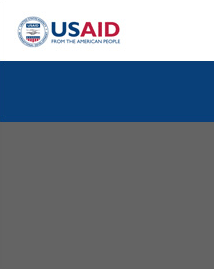Project Snapshot
Total Funding: $9.15 million
Start Date: September 2013
End Date: September 2018
Implementing Partner: Centers for Civic Initiatives, Center for Civil Society Promotion
The Challenge
The EU accession process promotes active participation of civil society organizations (CSOs) in government decision making and the EU integration process itself. However, sustainability of the broader civil society sector is at risk primarily because of its overdependence on international funding. In Bosnia and Herzegovina (BiH), governments do not view civil society as a major stakeholder, nor do they consider civil society to be a legitimate representative of constituents for holding elected officials accountable for their policy development and implementation. CSOs do not engage effectively with media or establish a common agenda with BiH citizens, and this lowers public confidence in civil society’s ability to advance democratic reforms. As a result, civil society in BiH is unable to influence public discourse on substantive issues. For their part, citizens are often reluctant to engage in civic activities.
Our Program
The Civil Society Sustainability Project increases civic engagement in policy development, government monitoring and oversight of key structural, political, social and economic reforms essential for EU integration, with a broader goal of increasing government accountability. The project helps civil society to better engage and join forces with other key stakeholders in business, government and media, and to focus on areas of comparative advantage. It also strengthens their internal capacities and organizational structures to ensure sustainability and financial viability after the life of the project.
Implementation and Results
The project selected 20 local CSOs to create 12 sector networks that include citizens and representatives from business, academia, media and government. The networks have identified priority issues for advocacy in each of the selected sectors and organized some effective campaigns.
The 12 sectors are: 1) anti-corruption; 2) employment and labor markets; 3) economic policy; 4) education; 5) health care; 6) human rights of marginalized groups; 7) women's rights; 8) agriculture and rural development; 9) culture; 10) public finances; 11) environment protection and energy efficiency; and 12) the justice sector.
Through these networks, USAID has already supported successful advocacy campaigns and reforms:
- The CULTURE 2020 Network held a monthlong advocacy campaign, under the slogan "JasamMuzej” (I Am the Museum), to resolve the legal and financial status of the National Museum in Sarajevo. The museum closed in 2012, 124 years after its opening, due to a lack of funding and political disagreements. The campaign drew attention and support from the wider public, political and government officials, international and media institutions. Each day of the campaign, citizens – a total of 800 over the course of the month – were on duty at museum premises, calling for this important institution to be re-opened. The government reopened the museum just six weeks after the campaign launch.
- The “White Bread” initiative resulted in three cantons (Sarajevo, Tuzla and Una-Sana) abolishing the right to so-called white bread, which is the privilege that allows government officials to continue receiving their salaries for a full year after they leave their posts. This was one of the most vocal demands of civic protests in February 2014. Current efforts are geared toward abolishing this right at the state level.
Through the CSSP Project, USAID has also established a separate CSO network, BRANA, to monitor and analyze the flood recovery process in 78 local communities. The network monitors and collects data on the spending of funds provided for reconstruction, and regularly informs the public through the interactive online map, www.brana.ba.
The project continues to monitor the work of elected officials and regularly inform the public on government efficiency. It will also advocate for more enabling legal and fiscal environment for civil society, on issues such as individual and corporate philanthropy, social entrepreneurship, CSO self-regulation mechanisms, and relations between CSOs and government.
For more information:
Asmir Cilimkovic, Chief of Party
E-mail: asmir@ccibh.org
Tel: +387 (0) 35 247 740








Comment
Make a general inquiry or suggest an improvement.